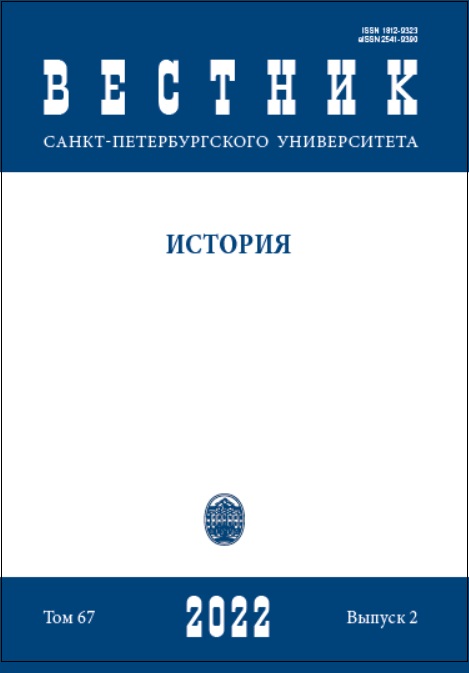Smuggling Consumer Goods in Soviet Russia in the Period of the New Economic Policy
DOI:
https://doi.org/10.21638/11701/spbu02.2022.206Abstract
The purpose of the paper is to analyze the reasons for the persistence of consumer smuggling in Soviet Russia / USSR during the period of the New Economic Policy. The study draws upon national and regional archives and archives run by specific government departments as well as upon statistical and media sources. The authors conclude that the main reason for the smuggling trade was the shortage of consumer goods, which was caused by a decrease in imports and a reorientation of manufacturing towards the industrial products, rejection of the ideology of “everyday asceticism”, and the emergence of a new Soviet bourgeoisie. They believe that the factors for maintaining the scale of consumer smuggling were: disagreements between the border guard and the customs service, the leniency of punishments for smuggling, and the underdevelopment of border duty-free trade. The authors show that a lack of consumer imports led to a demand for smuggled items, which transformed within a short period of time (the first post-Revolutionary decade) unorganized smuggling carried out by individuals into a large-scale smuggling operation set up by organizations in which each member performed a specific function. The study demonstrates that government policies of protecting the state monopoly of foreign trade and a steady demand for smuggled goods contributed to the preservation of the smuggling industry. The presence of illegally imported consumer goods on the market contributed to the stabilization of the social situation in Soviet Russia during the years of the New Economic Policy. It became an alternative channel for satisfying the material needs of the urban population. Western products were not only sold from under the counter to representatives of the wealthy strata of the population but also entered the state and cooperative commercial network and craft workshops, which reduced shortages of goods on the domestic market. Smuggling in the 1920s could be classified as a “victimless crime” because it benefited not only its perpetrators but also those who used their services.
Keywords:
smuggling, consumption, fight against smuggling, smuggled goods market, Soviet Russia
Downloads
References
References
Downloads
Published
How to Cite
Issue
Section
License
Articles of "Vestnik of Saint Petersburg University. History" are open access distributed under the terms of the License Agreement with Saint Petersburg State University, which permits to the authors unrestricted distribution and self-archiving free of charge.





